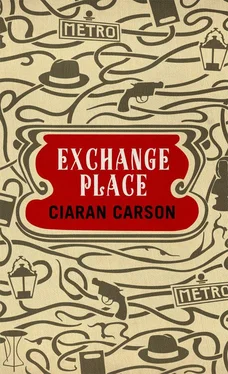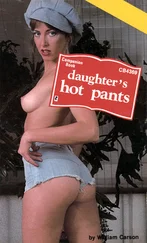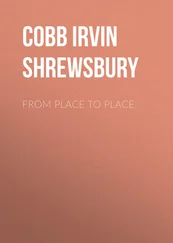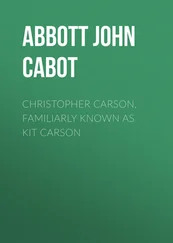The vacuum cleaner stopped. Gould’s playing was nearing its end. Kilpatrick had closed his eyes, bracing himself for the impact of that gunshot of explosive silence, when he heard a voice beside him. Wonderful thing, don’t you think, said the voice. Music of the spheres. Kilpatrick turned round. It was the man he had met in the Irish bar, the James Joyce. Same red face. Black Hugo Boss overcoat. Black briefcase. It was the same man all right. If I may, said the man. He sat down beside Kilpatrick, and placed the briefcase on the floor at his feet where a moment ago the housekeeper had been vacuuming. Vacuum cleaner, what was the word? L’aspirateur .
It has only just occurred to me that Ben, my watchmaker’s moniker for me, John Kilfeather, is of course short for Benjamin; and the Flower Pot Man name, with all its associations with Flower Power and pot or dope or blow, Mary Jane, the Fragrant Weed, suddenly assumes, like a mantle, the scholarly aura of Walter Benjamin; I see that photograph of him, the hair rising from the high brow in a shock of convoluted waves shot with grey, one lens of the wire-rimmed spectacles catching the gleam of a contemplative or saddened eye, the thoughtful brow supported by the fingertips of the right hand, the strong nose above the drooping moustache, the lips half-hidden, his eyes of an inward cast not meeting the camera but entering an inner room where Walter Benjamin relives the memories of the man he has been and wanders again the boulevards of a foreign yet familiar city, lost and at home, or looks into the future; I admire the style of the dark jacket, the floppy-collared shirt, the dark tie with a thin diagonal stripe; and I see myself and John Harland looking at the photograph, which Harland had culled from a literary journal and pinned to a cork board together with a host of other images. It was Harland who had introduced me to Benjamin’s writing.
He also who introduced me to the work of J.S. Bach, of whom I knew nothing, but presumed he wrote symphonies. Symphonies? said Harland. Never wrote a symphony in his life. Preludes, toccatas, choral preludes, fugues, Masses, oratorios, yes, but symphonies? Never, said Harland. I remember the first time I heard Glenn Gould’s playing of Contrapunctus XIV , except I didn’t know what it was then, I am still finding out, this opening statement followed by a recapitulation or development of what it bears in mind, a hesitant yet luminous exploring of the theme, which turns itself into itself by way of ever-branching variation, wistful sometimes, sometimes forceful, plangent, yearning. Harland had it on the Dansette record player in Exchange Place. All this time Harland was painting, jabbing or dragging or quavering his brush across the canvas in time to the music, leading the notes from the air to become the paint of the painting. As his body swayed to the music, I watched Harland become the conductor of things from one world to the other, I watched him become Hermes who negotiates the Underworld, Hermes the god of the crossroads, Hermes the god of chance, the angel who guides you to the page in the book you did not know you were looking for until you opened it, and looked into it.
Of course I didn’t know then how the piece ended, and when it did, with that shock that still goes through me when I hear Contrapunctus XIV , Harland held his brush aloft in a final conductor’s flourish, then threw it at the canvas. The hinges of form come about by chance, he said. Francis Bacon. He went over and perused the splatter the brush had made on the image. Interesting dendrites, he said. Nice axons. You know, the brain. I knew the terms vaguely. Clusters, branches, strings of nerve cells interconnected in some kind of fractal pattern, collecting and disseminating streams of information in the blink of an eye. I looked at Harland’s splatter anew, seeing things in it I hadn’t seen until then. But where exactly they were going, I couldn’t say.
I looked up from my writing in the Adelphi bar, and found Paddy Ireland looking at me. Paddy was the barman. He was often ribbed about his name, but bore it with pride. He conducted his métier with professional grace and efficiency, and I see him now, Parisian-style in his black waistcoat and long white apron, brilliantined grey hair parted in the centre, silver armbands glinting in the crooks of his white shirtsleeves. Another one? he said. He knew me of old. He would know Harland of old. I nodded. We had just watched Scene Around Six together. The viable anti-personnel device planted by dissident republicans in a white Volkswagen people-carrier parked at the Antrim Road Plaza shops was being monitored by the security forces. Police were as yet unable to say when those residents who had been asked to leave their homes for their own safety could return to them. I sighed. Dissident republicans my arse, said Paddy. They’re nothing but scum. Paddy was a republican of the old school of the forties and fifties. Dissident, I said, doesn’t mean what it meant in East Germany, that’s for sure. He set me up the drink and poured himself one under the counter. He raised it briefly to mine. To old comrades, said Paddy. Old comrades, said I.
I’m writing this in my hotel room. The Albert Clock has just chimed twelve, the way it does in Odd Man Out , and I think of the fugitive Johnny McQueen staggering, wounded, through the dark Belfast streets, puddles shimmering under gaslight. I’ve just smoked a little Black Rose. I blew the smoke out the dormer window. If you look into a flower head of Black Rose with a jeweller’s loupe, you will see dendrites and axons of the glittering crystals that contain the active cannaboid ingredient, sea-salt white against the purple black of petal and sepal. I taste it on my lips and on my tongue. I had a sachet of Black Rose in my fob pocket. Lucky I didn’t think of it when confronted by the policeman. It might have showed on my face, or maybe he wouldn’t have noticed. He seemed fully focused on the current assignment. As it is, the room seems warm and hospitable in the dim light of the bedside lamp. I am writing the first thing that comes into my head into the notebook, and I think of Coleridge on laudanum, a few drops of the Kendal Black Drop taken in wine or brandy, Samuel Taylor Coleridge, STC or Ecstasy, as he liked to style himself, writing by candlelight in the dark cave of his library, discovering that words are coming to the page before he has conceived of them, his pen scarcely able to keep pace with their train of thought as they flicker forward like black candle-flame on the white page glowing in the candlelight, and I remember countless other times when I have written ecstatically in notebook after notebook, whether under an awning in the pouring rain or on the sunlit terrace of a café, scribbling for months, for years, circling round a theme that only gradually discloses itself, pages covered in words, arrows leading back to other words, words crossed out, addenda, corrigenda, pages flickering behind this page I write in now. I turn to Walter Benjamin. From the A5 notebook:
‘He who has once begun to open the fan of memory never comes to the end of its segments. No image satisfies him, for he has seen that it can be unfolded, and only in its folds does the truth reside — that image, that taste, that touch for whose sake all this has been unfurled and dissected; and now remembrance progresses from small to smallest details, from the smallest to the infinitesimal, while that which it encounters in these microcosms grows ever mightier.’ I place pen and notebook on the bedside table. I turn off the light. I go to bed. To sleep. Perchance to dream.
Freddy Gabriel, said the man. John Kilmore, I presume? Kilpatrick nodded. Another coffee? said Gabriel. Kilpatrick felt trapped but there was something in Gabriel’s manner that made him think he would not take no for an answer. Gabriel gestured to the waiter. Deux cafés, s’il vous plaît, Marcel , said Gabriel. Ah, Monsieur Freddy , said the waiter, and they embarked on some small talk about the weather. Gabriel’s accent was impressive and the waiter laughed when Gabriel made a joke. Kilpatrick felt an urge to come clean. He had not had any kind of conversation with anyone for many days and he felt the need to talk like a normal human being. Actually, you know, he said, when we met the other day, I told you a bit of a fib. And he told Gabriel of how when you were abroad you felt you could be anyone, he knew it was silly, but he had momentarily succumbed to that urge to be someone else. His real name was not John Kilmore, it was John Kilpatrick.
Читать дальше












